Related posts plugins for WordPress sometimes get a bad rap in the community.
On one hand, they provide a user-friendly way to get your visitors more engaged and browsing deeper into your website. That’s good!
But on the other hand, many managed WordPress hosts have banned certain related posts plugins because they can be, in the words of WP Engine, “extremely database intensive” as a result of poor caching and inefficient database queries.
So does that mean you shouldn’t use related posts plugins because they’ll slow down your database/server? Of course not!
But it does mean that you should be careful about which specific WordPress related posts plugin you choose.
To help you choose the best plugin for your site, I’m going to investigate five popular related posts plugins and test:
- How they affect page load times (using Pingdom)
- How many database queries they add (using Query Monitor)
By the end, you should be able to find a plugin that gives you the related posts functionality that you need without harming your site’s database performance.
The two sets of related posts plugins we’ll be looking at
In this post, I’ll investigate two sets of plugins:
- Those that are banned by WP Engine and GoDaddy
- Those that are recommended by WP Engine and/or GoDaddy
Here’s a quick table summarizing some plugins from each camp (according to WP Engine’s recommendations):
| Plugins that are often banned * | Plugins that are typically allowed |
|---|---|
| * “often banned” just means that, of the managed WordPress hosts that actually ban certain plugins, these plugins frequently show up. Both WP Engine and GoDaddy block all three plugins. | |
| ** While Outbrain is a nice service, I won’t be including it because it lacks a dedicated WordPress plugin. | |
| Yet Another Related Posts Plugin (YARPP) | Jetpack Related Posts |
| Contextual Related Posts | Related Posts for WordPress |
| Similar Posts | Outbrain ** |
If we’re to believe the advice of managed WordPress hosts, then these two plugins should be the top performers:
- Jetpack Related Posts
- Related Posts for WordPress
But let’s not jump the gun before we get to the data…
How we’ll test these five related posts plugins
To test these plugins, I’m going to use:
- A fresh test site (hosted at Namecheap)
- Our Hestia theme
- Theme Unit Test data to get a good base of content for related posts calculations
For each plugin I’ll:
- Install and activate the plugin using its default settings
- Load and refresh a post with related posts to give the plugin a chance to cache its results (if applicable)
- Test my site’s page load times with Pingdom
- Use Query Monitor to monitor database requests and execution time for that same post (this will likely be a more helpful test)
In between tests, I’ll reset my database using Reset WP to make sure each test has a clean slate.
As a rough rule of thumb while you read the results, lower numbers are better for all the tests.
Five popular related posts plugins tested and compared
I’ll start with the plugins that WP Engine and GoDaddy recommend and then move on to a few of the banned plugins. Then, at the end of the post, I’ll put all the data together and recommend some plugins based on the results.
1. Jetpack Related Posts
Jetpack, the popular suite of tools from Automattic, includes a related posts module as part of its feature set.
One of the neat things that you get with Jetpack Related Posts is the ability to customize your related posts in the WordPress Customizer, as well as an easy implementation and setup process.
Both WP Engine and GoDaddy Managed Hosting recommend Jetpack as an optimized related posts plugin. So does the data back that up?
| Pingdom Page Load Time | Query monitor SELECT | Query Monitor SHOW | Query Monitor Time |
|---|---|---|---|
| * Jetpack was hard to test because of the effect of other modules on the database query count. While the screenshot below will show 7 SELECT queries, only one of those queries was for related posts. | |||
| 1.23 s | 1 * | 0 | 0.0003 |
2. Related Posts for WordPress
Related Posts for WordPress is another plugin that WP Engine recommends to handle related posts.
In addition to that recommendation, the plugin has some nice things going for it in that:
- The setup wizard is super easy to use
- You can manually link posts to one another (or let the plugin handle everything automatically)
- The plugin includes a widget that you can use in your sidebar
And the Pro version also lets you:
- Have more control over styling
- Adjust weights for related content
| Pingdom Page Load Time | Query monitor SELECT | Query Monitor SHOW | Query Monitor Time |
|---|---|---|---|
| 999 ms | 7 | 0 | 0.0008 |
3. Yet Another Related Posts Plugin (YARPP)
Yet Another Related Posts Plugin has been around forever and has managed to rack up an impressive 200,000+ active installs.
It’s the most popular dedicated related posts plugin (obviously, Jetpack is more popular overall).
While in the past YARPP had a bad reputation for performance, the developer has made an effort to improve that since version 3.5 of YARPP.
YARPP is flexible and makes it easy for you to work with custom post types and taxonomies, which is one of its draws.
But, as much as the developer has tried to improve things, YARPP still finds itself on the banned plugins list at some managed WordPress hosts.
| Pingdom Page Load Time | Query monitor SELECT | Query Monitor SHOW | Query Monitor Time |
|---|---|---|---|
| 1.12 s | 16 | 4 | 0.0042 |
4. Contextual Related Posts
Contextual Related Posts is another plugin that often ends up on the banned list at certain managed WordPress hosts.
Despite that, it does have great reviews at WordPress.org and comes with some neat features like:
- Custom post type support
- Related posts widget
- Thumbnail support
Additionally, reviewers at WordPress.org seem to compliment the plugin’s algorithm for serving up posts that are truly related.
| Pingdom Page Load Time | Query monitor SELECT | Query Monitor SHOW | Query Monitor Time |
|---|---|---|---|
| 1.06 s | 21 | 0 | 0.0471 |
5. Similar Posts
Similar Posts was originally developed by Robert Marsh. But since September 2016, the plugin has been taken over by WebFactory and given a new life.
Despite it actually faring surprisingly well in my tests, the plugin shows up on the banned list at both WP Engine and GoDaddy.
As for its features, Similar Posts gives you a good deal of control over your related posts template, as well as which posts are eligible to show up as related content.
And you can also manually change parts of the algorithm to modify the weight given to a post’s content, title, and tags.
| Pingdom Page Load Time | Query monitor SELECT | Query Monitor SHOW | Query Monitor Time |
|---|---|---|---|
| 1.04 s | 1 | 0 | 0.0001 |
Which WordPress related posts plugin should you choose?
After crunching the numbers, here’s a summary of how things shook out:
| Plugin | Pingdom Page Load Time | Query monitor SELECT | Query Monitor SHOW | Query Monitor Time |
|---|---|---|---|---|
| Jetpack | 1.23 s | 1 | 0 | 0.0003 |
| Related Posts for WordPress | 0.99 s | 7 | 0 | 0.0008 |
| YARPP | 1.12 s | 16 | 4 | 0.0042 |
| Contextual Related Posts | 1.06 s | 21 | 0 | 0.0471 |
| Similar Posts | 1.04 s | 1 | 0 | 0.0001 |
It doesn’t surprise me that the page load times were similar. Because my test site isn’t under any real load, it’s not a great representation of how these plugins would affect things on a more highly-trafficked site.
What’s more interesting is the number of database queries and the time it took to execute those queries.
With the exception of Similar Posts, there was indeed a noticeably higher number of queries in the “often banned” plugins than the “recommended” plugins. Additionally, those queries took significantly longer to execute.
In the end, if you want a performance-oriented related posts plugin that isn’t going to drag down your database, the test data says you should look at:
- Jetpack Related Posts
- Related Posts for WordPress
- Similar Posts – while managed WordPress hosts don’t seem to like it, it fared well in my tests and has received regular updates since WebFactory took over.
Of these three options, Jetpack is the easiest to implement, while Related Posts for WordPress and Similar Posts give you more control over the nitty-gritty details.
Now it’s your turn – what’s your favorite related posts plugin? Let us know in the comments!
















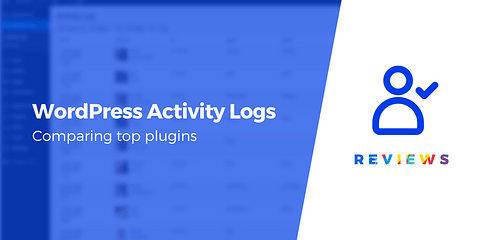
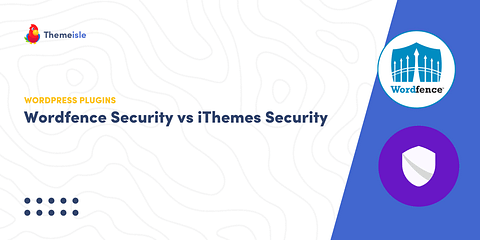


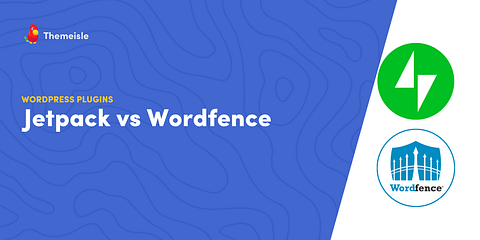




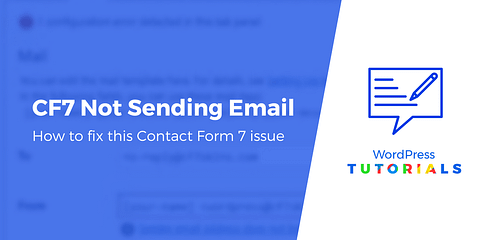


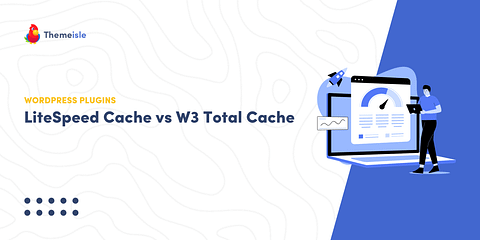

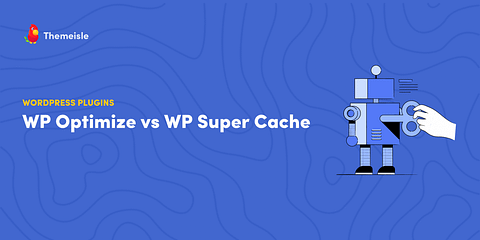

Similar posts seems pretty good especially with only one db query. I’ll try it out.
Or start the conversation in our Facebook group for WordPress professionals. Find answers, share tips, and get help from other WordPress experts. Join now (it’s free)!